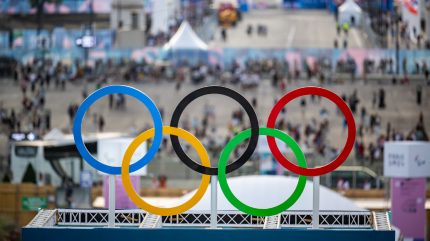
At the beginning of September, following the conclusion of the Paris 2024 Paralympic Games, Japanese electronics giant Panasonic announced that it was ending its relationship with the International Olympic Committee (IOC) and its tenure as a member of the TOP sponsor programme.
Panasonic was a founding member of the TOP programme when it was launched in 1987, having been a sponsor of the 1984 Olympic Games in Los Angeles. Ending its commitment to the Olympic movement ahead of the Games’ return to LA carries a degree of symbolism, but also points to significant challenges for the IOC in terms of its commercial strategy.
Panasonic ending its involvement, which is worth an estimated $320 million in total over the course of its last agreement which ran from 2017 to 2024, must be seen as a blow to the IOC.
Confirming the decision, Panasonic cited continual reviews as to how “sponsorship should evolve” as the reason why it will walk away. Fellow Japanese brand Toyota is also rumoured to be departing while Bridgestone has stated that “nothing is decided” regarding its sponsorship of the Games.
Given that the Olympics will now be moving to North America, Europe and Oceania for the next editions of the Summer and Winter Games, it is perhaps logical that the three Japanese brands are withdrawing from partnerships given the lack of focus for its key domestic markets.
Spending an estimated $686 million across one Olympic cycle with the Japanese Yen at its weakest point in decades, potentially a revision of their marketing strategy for the three brands is simply a response to market conditions and geographic reality.
However, the fact remains that Panasonic has stuck with the IOC for nearly 40 years, weathering governance scandals that threatened to destroy the Olympic movement as well as the Olympics being staged in places with little to no ‘local market’ impact for the brands – from 1992 through to 2012, only two Olympics were staged in Asia (Nagano in 1998 and Beijing in 2008) so the lack of a ‘local’ games would unlikely be such a pressing consideration.
The phrase “continual reviews of how sponsorship should evolve” can be seen to be instructive when looking at the future of Olympic Games sponsorship, but also ‘mega-events’ in general.
While being part of the TOP programme has given the likes of Panasonic a global presence for the last 37 years, the ‘Greatest Show on Earth’ provided unparalleled access in a time where the reach of sporting events was limited to traditional broadcasting, thereby justifying the large price tag associated with the TOP programme.
To complement the reach of traditional broadcasting, advertising opportunities where the use of the Olympic logo could be leveraged, meant that a partnership for a brand targeting a global marketplace where competition was limited would prove to be a cost-efficient way to reach a large global audience.
However, the limitations of partnering with the Olympics are obvious. The Summer Games draw in the most eyeballs and while the Winter edition is popular, it is nowhere near the scale of the Summer edition, which essentially means that the window of opportunity for maximizing the value of the sponsorship is maybe a few months every four years.
No advertising is permitted in venue at the Games, meaning that all ‘benefit’ from associating with the TOP programme must be developed through activating the partnership, all at brands’ expense.
If Panasonic spends as much on activating its partnership as it does on fees, then the cost to them over an Olympic cycle would be $320 million.
The evolution of sports broadcasting and sponsorship over the past decade especially suggests that there may be greater opportunities for a brand like Panasonic to reach its target audience.
The question all brands must ask before entering a TOP partnership is simply ‘Is it worth it?’. It seems that several brands already in the programme may be concluding that it isn’t.



